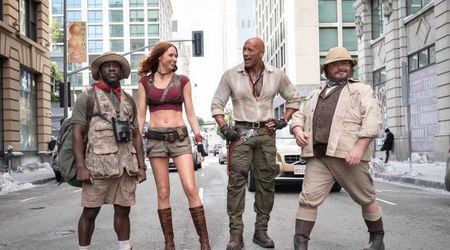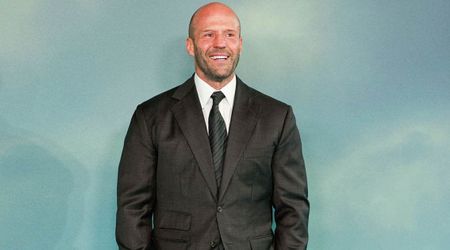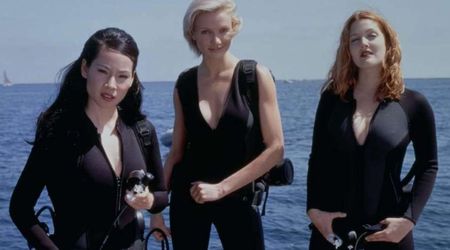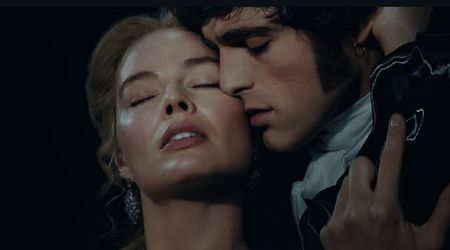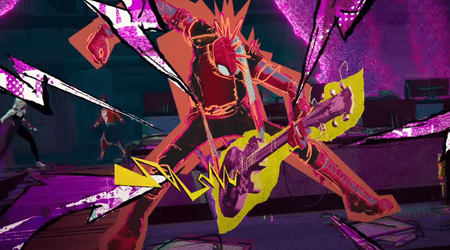'Hannah Gadsby: Douglas' Review: Renaissance, autism and oddly named body parts make for a triumphant return

When Hannah Gadsby begins her newest comedy special streaming on Netflix, 'Douglas', she asks right off the bat if we are watching it because of 'Nanette'. Gadsby's previous special was a moving discourse about gender and trauma, using comedy as medium. It gave Gadsby the much-needed breakthrough across the world as her special was lauded for being just that, special.
“I have built a career out of self-deprecating humor and I don’t want to do that anymore,” Gadsby said in 'Nanette'. “Do you understand what self-deprecation means when it comes from somebody who already exists in the margins? It’s not humility, it’s humiliation.”
As 'Douglas' begins, Gadsby jokes that she’s “fresh out of trauma” — and that if she knew how lucrative her trauma would be, she would’ve rationed it out to “at least a trilogy”.
Are we here for another 'Nanette'? Perhaps not, but we are here because of 'Nanette', whether we have seen it or not. As such, Gadsby opens 'Douglas' by laying out all the cards and what we can expect through the rest of the show — her experience with autism, her dog Douglas after whom the show was named, and of course, needling the patriarchy. Gadsby also says that she will be baiting the haters, because as Tay Tay sings, "haters gonna hate, hate, hate, hate..."
The needling of patriarchy begins with considering that men have named everything, including all our body parts — and that includes, the Pouch of Douglas. What is the Pouch of Douglas, you ask? We could explain it or you could Google it, but neither option is as satisfying as hearing (and watching) Gadsby unraveling what the Pouch of Douglas is.
'Douglas', like 'Nanette' explores gender as well, but more in terms of the discrimination that the "weaker" gender has been subjected to, and all the failings that come with it. This also means the rage that comes from it — something Gadsby brings about beautifully and comically.
She also ties up everything by bringing in the Italian Renaissance movement and going through a few paintings of the era — especially those that feature women in vulnerable and exploitative forms — and sets you wondering, why have men been in charge for so long?
It is when Gadsby speaks about the diagnosis of her autism (and her self-diagnosis before that), that the show brings out exactly why Hannah Gadsby is remarkable. She brings both the emotional weight and comical lightness when she talks about her experience through the diagnosis and how she now understands these old moments of confusion, how the diagnosis has unlocked her self-knowledge, how it is not the prison it’s often perceived to be, in fact, quite the opposite.
In 'Nanette', Gadsby also said, "There is nothing stronger than a broken woman who has rebuilt herself," and 'Douglas' is the glorious representation of that. Gadsby is loud and triumphant, moving around and laughing and slyly smiling — all the things we love to see — as she revels in what is surely another successful special.
If you weren't a fan before, you will be now — but not if you are one of her "haters."
'Hannah Gadsby: Douglas' is now streaming on Netflix.



